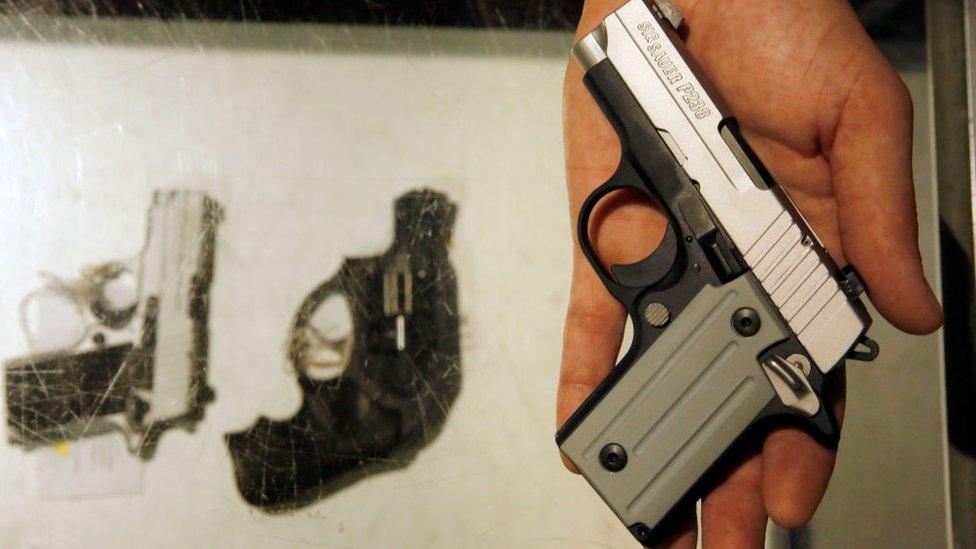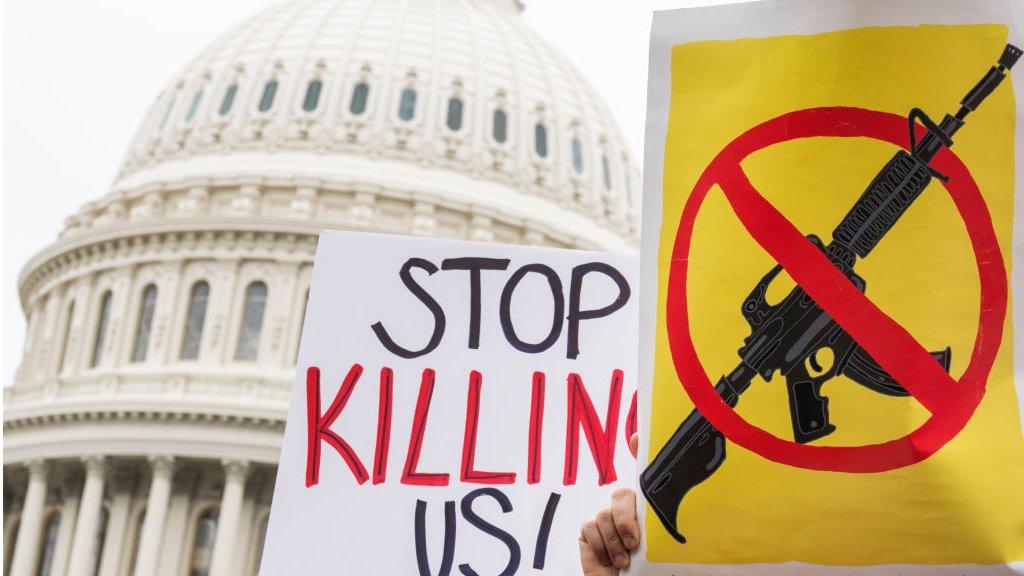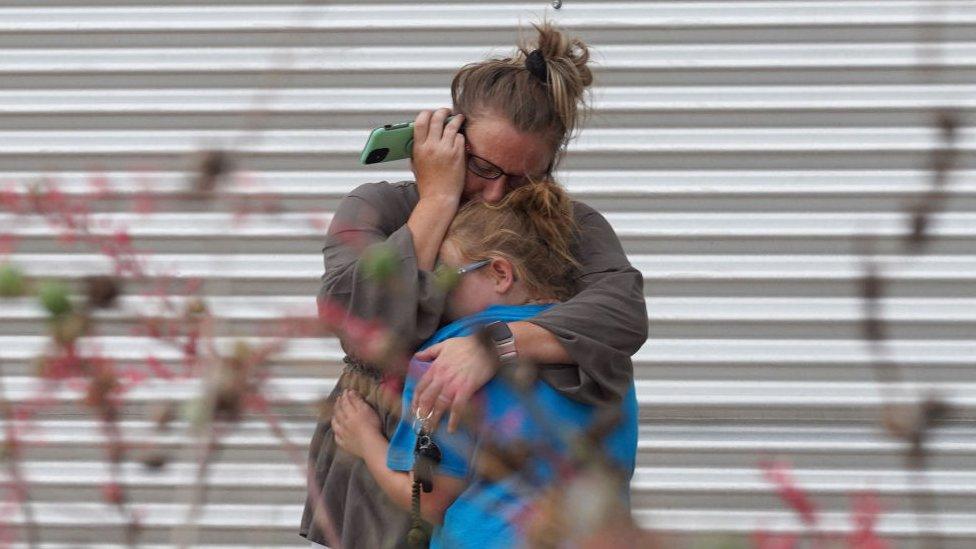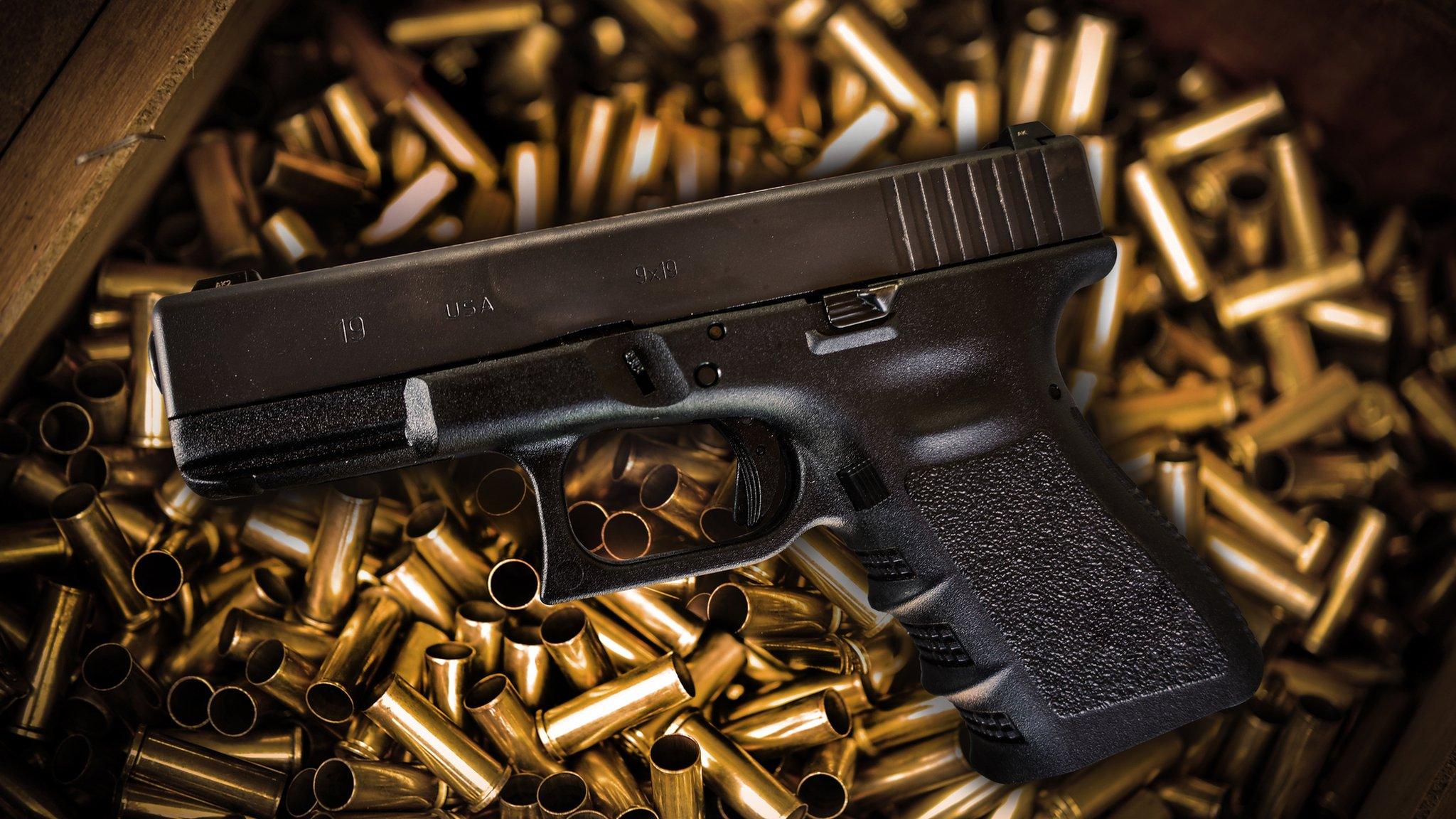Supreme Court ruling expands US gun rights
- Published

The US Supreme Court has struck down a New York law restricting gun-carrying rights, in its most important judgement on guns in over a decade.
It expands gun rights amid a fierce national debate over the issue.
The decision, which jeopardises similar regulations in states like California and New Jersey, is expected to allow more people to carry guns legally.
About a quarter of Americans live in states that could be affected if their own gun restrictions are challenged.
The court found that a New York law requiring residents to prove "proper cause" - or a good reason - to carry concealed firearms in public violates the US Constitution.
Justice Clarence Thomas, writing on behalf of the six conservative judges who make up the court's majority, ruled that Americans have a right to carry "commonly used" firearms in public for personal defence.
The three liberal justices - Elena Kagan, Sonia Sotomayor and Stephen Breyer - dissented, meaning they disagreed with the majority opinion.
The court's decision clears the way for legal challenges to similar restrictions in Maryland, California, New Jersey, Hawaii and Massachusetts.
It comes amid political divisions over how to address gun violence, which were deepened by high-profile shootings at a primary school in Uvalde, Texas, and a grocery store in Buffalo, New York, last month.
Thursday's ruling came as new legislation that would tighten access to firearms passed the US Senate.
Watch: The moment a Republican pulls out guns during a Congress debate on new gun legislation
President Joe Biden said he was "deeply disappointed" by the Supreme Court's decision, which he said "contradicts both common sense and the Constitution, and should trouble us all".
New York City Mayor Eric Adams said he would review other ways to restrict gun access, such as by tightening the application process for buying firearms and looking at bans at certain locations.
"We cannot allow New York to become the wild, wild west," he added.
The National Rifle Association (NRA) celebrated the judgement.
The gun lobby had helped back plaintiffs in the case, Robert Nash and Brandon Koch - two New Yorkers who had applied for a concealed carry permit but were denied them, despite having licences for recreational gun ownership.
More than 390m guns are owned by civilians in the US. In 2020 alone, more than 45,000 Americans died from firearms-related injuries including homicides and suicides.
The Supreme Court decision continues a steady pattern of rulings that have expanded gun rights, holding that the right to carry firearms both at home and in public is guaranteed by the Second Amendment of the US Constitution.
Even in the shadow of the mass shootings in Uvalde and Buffalo, the six-justice conservative majority on the Supreme Court stood by a broad interpretation of the Second Amendment to "keep and bear arms".
The last landmark gun decision issued by the court was in 2010, which upheld individual gun-ownership rights within homes on a national basis.
As these court precedents pile up, it will be increasingly difficult for future Supreme Court justices to change course and interpret the Constitution as permitting broader gun restrictions.
In his dissent, Justice Breyer noted that gun violence has taken a significant number of lives in the US this year.
"Since the start of this year alone, there have already been 277 reported mass shootings - an average of more than one per day," he said.
The Senate meanwhile passed the first national gun control bill in nearly three decades on Thursday night by 65-33.
The new law includes measures such as expanding background checks for gun buyers under-21 and offering funding to states that have emergency programmes in place to seize guns from people deemed dangerous by a judge.
The bill will next have to clear the US House of Representatives before going to President Biden's desk for his signature.
Related topics
- Published22 June 2022

- Published28 May 2022

- Published25 May 2022

- Published22 April 2022
